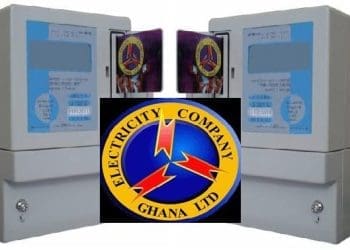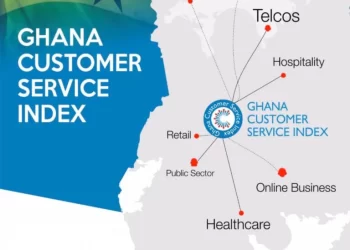Canadian conglomerate Rektron Group Incorporated’s superior $1.15 billion rescue plan has been quietly sidelined by the government in favour of a far smaller and less defined offer from Telecel and its new partners, Electrum Group and Vodacom.
At the heart of the dispute is the government’s apparent decision to allow Telecel to absorb AT Ghana — formerly AirtelTigo — despite Rektron’s far more ambitious and well-financed plan to recapitalise, restructure, and modernise the collapsing state-owned operator.
A sector on the brink
AT Ghana’s situation has deteriorated sharply in recent months. The company is buried under liabilities, has lost over $10 million in just the first eight months of 2025, and faces a potential shutdown after the American Tower Corporation began deactivating cell sites over roughly $463 million in unpaid tower fees.
With a user base of only 3.15 million subscribers — a distant third behind MTN’s 18 million and Telecel’s 4.3 million — AT Ghana has long been the weakest player in the market.
Unless the government secures a credible investor capable of injecting hundreds of millions in new capital, Ghana risks a telecom disaster.
Rektron’s golden offer — and official silence
In May 2025, Rektron signed a Memorandum of Understanding (MoU) with the Ministry of Communications, giving it 60 days to conduct due diligence and present documentation for a 60% equity investment in AT Ghana.
Rektron’s proposal was unprecedented: a $150 million immediate injection comprising cash, credit lines, and guarantees, followed by a $1 billion investment over five years to clear debts, upgrade infrastructure, and reposition AT Ghana as a modern, competitive operator.
The company — a diversified Canadian group with extensive telecom and infrastructure experience — moved swiftly.

Rektron officials engaged all AT Ghana’s major creditors, including ATC, and assured them of repayment plans once operations resumed.
Rektron’s letters to Sam George go unanswered
Immediately after the MoU, Rektron launched an intensive due diligence exercise.
Its executives met with AT Ghana’s leadership — including executives in marketing, finance, and technical teams — as well as tower companies that serve as creditors and infrastructure vendors.
KPMG, the government’s transaction advisors, wrote to Rektron on June 20, 2025, requesting extensive documentation on Rektron and its local partner, Afritel.
The two companies compiled the required material and submitted it to KPMG on July 2, 2025.
On July 3, Rektron and Afritel informed Minister Sam George via email that they had completed due diligence in line with the MoU. But there was no acknowledgement or response.
The 60-day deadline in the MoU lapsed on July 20.
Five days later, Rektron’s lawyers hand-delivered a formal request to the ministry seeking a mutual extension of the review timeline. Once again, the minister failed to respond.
While the ministry remained unresponsive, KPMG continued to request clarifications.
Between July 31 and August 28, Rektron responded promptly to every query — submitting proof of funds, confirming its ownership structure, and providing further documentation when requested.
Despite KPMG’s acknowledgements, there was no further engagement from the ministry.
Then, without warning, reports surfaced on September 4 that the government was moving ahead with a merger between AT Ghana and Telecel — effectively discarding the Rektron proposal without explanation.
Telecel’s modest plan raises questions
Telecel, which bought Vodafone Ghana in 2023, has since struggled with financing and operational restructuring.
When Telecel acquired Vodafone in 2018, the company promised to inject $500 million, but ended up investing about $10 million even that was more invested into their brand change and other little stuffs that amount while its debt soared to over $400 million.
Its new partners, Electrum Group and Vodacom, have pledged to help strengthen its balance sheet but have not disclosed any concrete figures for new capital inflows.
Nor have they provided any roadmap for AT Ghana’s 300 staff and 200 contractors.
Telecel’s investment plan for the AT takeover appears modest compared to Rektron’s $1.15 billion blueprint.
Telecel Chief Executive Officer Mohamad Zakaria announced on October 3 that the company would invest “well above $50 million” to upgrade network infrastructure — including radio and fibre backhaul — and migrate all AT subscribers onto Telecel’s network by the first quarter of 2026.
However, information indicates that Telecel’s core network cannot absorb AT Ghana’s customers.
The merger effectively folds AT Ghana into Telecel through an equity swap, allowing the government to exchange its 100% stake in AT for additional shares in Telecel, in which the state already holds 30%.
Analysts argue that it is not viable to keep pumping taxpayer funds into a failing enterprise, but critics counter that the Telecel merger offers little real capital and may simply paper over AT’s debt and structural deficiencies.
Rektron’s comprehensive rescue vision
Rektron’s plan stood out for its scale and structure.
Beyond the $150 million upfront equity injection, the Canadian group pledged an additional $1 billion over five years to modernise AT Ghana’s infrastructure, clear supplier arrears, and expand coverage.
The funding would have supported 5G trials, extended network access to underserved rural communities, and overhauled the company’s outdated mobile money platform — aligning with the government’s digital transformation agenda.
The plan also included measures to absorb AT Ghana’s 300 permanent employees and retrain hundreds of contract workers to fit into new operational frameworks.
By contrast, Telecel’s limited $50 million commitment raises doubts about whether it can cover even a fraction of AT’s liabilities, let alone upgrade its network or compete against MTN’s 73.9% market dominance.
Hidden hands and unanswered questions
The abrupt halt in communication with Rektron and the simultaneous acceleration of the Telecel merger have raised suspicions of interference or favouritism within the ministry.
Insiders hint that some officials may prefer a politically convenient transaction — one that consolidates existing relationships rather than introduces a powerful new foreign investor with deep pockets and independent leverage.
Rektron officials are baffled that after months of compliance with every procedural request, their engagement was met only with silence.
If the goal is to stabilise the telecom sector and protect Ghanaian jobs, observers argue, then Rektron’s package — with guaranteed financing and a long-term investment horizon — should have been the natural choice.
Instead, the decision to proceed with Telecel’s proposal has deepened concerns about transparency and governance in the handling of strategic national assets.
Mounting risks for taxpayers
Industry analysts warn that if the Telecel-AT merger fails to inject sufficient new capital, the consequences could be dire.

A capital shortfall of $200 million to $250 million still looms over AT Ghana’s books, and any default could roll back onto the state, undoing years of effort to privatise and depoliticise the telecom sector.
The Ministry of Communications estimates that, under ideal conditions, the merger could unlock up to $600 million in sector-wide investment over the next four years.
But such projections assume Telecel and its partners will mobilise substantial resources — a promise that so far remains unverified.
The slow-motion collapse of AT Ghana is becoming a national liability, and the government’s opaque handling of potential investors is only deepening public frustration.
A deal that deserves scrutiny
For now, Rektron remains in limbo. Having fulfilled all due diligence requirements and proven its financing capacity, the company has neither been officially rejected nor granted the courtesy of a response.
Its $1.15 billion proposal — a mix of equity, debt restructuring, and capital expenditure commitments — dwarfs Telecel’s “well above $50 million” plan by more than twentyfold.
Yet, the question persists: why would Ghana turn away a credible multinational with the means to rescue a failing national asset in favour of a smaller operator still struggling with its own restructuring?
Until the government explains the rationale behind its preference, suspicions will linger that the blocking of the Rektron deal was never about policy or performance — but about politics and hidden interests.
If AT Ghana continues its downward spiral, the cost will not fall on Telecel or Rektron, but on Ghanaian taxpayers who have already borne the weight of every failed rescue attempt.












